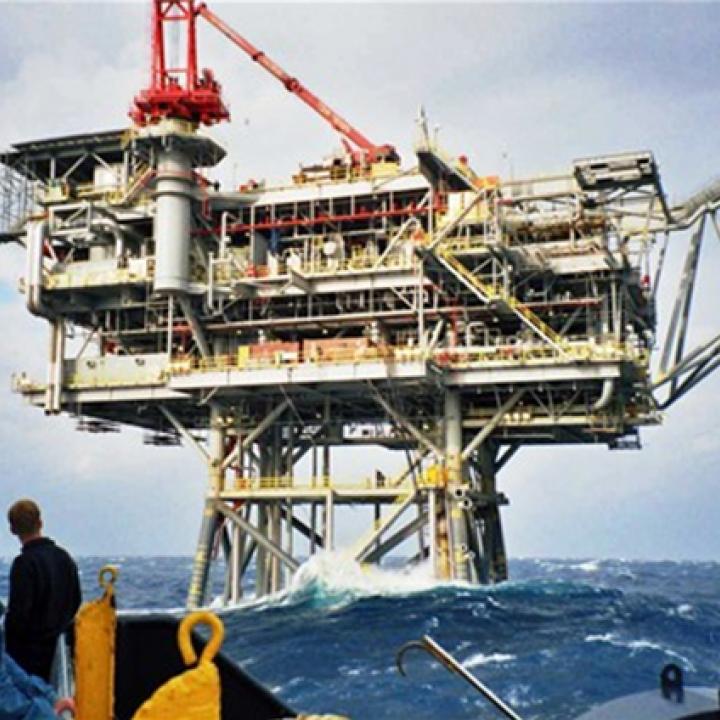

The choice of an Australian company to take a stake in Israel's giant offshore gas field indicates strategically significant commercial and political decisions.
The announcement that Woodside Petroleum is buying a 30 percent share, valued up to $2.5 billion, in Israel's Leviathan natural gas field reflects growing awareness of the importance of new findings in the Eastern Mediterranean. The offshore field, discovered in 2010, is Israel's largest find so far, and most of its reserves will likely be used for export.
Woodside's background is in gas fields discovered off the coast of northwestern Australia, as well as in liquefied natural gas (LNG) technology, which enables the resource to be shipped by tanker across the globe. Woodside's ownership stake will come from the existing shareholders -- Noble Energy of Texas and Israel's Delek Group and Ratio Oil Exploration. Noble has been immensely successful in leading exploration drilling off Israel and Cyprus, but it lacks LNG credentials. As part of the deal, Woodside also becomes a strategic partner in the drilling process.
Aside from the cash injection and technical knowhow, Israel was attracted to Woodside's LNG experience because its options for export by pipeline are limited. The nearest customers are Jordan and the Palestinian territories, but their markets are small. Turkey, a potentially attractive customer because of its size, is at political odds with Israel. Accordingly, LNG exports to Europe or Asia make more sense, but the size of the requisite liquefaction plants on Israel's Mediterranean or Red Sea coast would likely engender opposition by environmentalists. Woodside is currently developing a floating LNG plant the size of six Nimitz-class aircraft carriers for its Australian operations, but that method's appropriateness for Israel is debatable. Whatever approach is chosen will be costly -- at least several billion dollars.
On the political front, Moscow is no doubt disappointed. Russian gas giant Gazprom also bid for the Leviathan stake, but it lacked LNG qualifications. The company may well fear that even relatively small Israeli gas volumes could threaten its role as the predominant exporter to Europe. Political retaliation is therefore a real danger: Moscow is believed to have warned Israel that Russia is the only party capable of persuading Syria and Hizballah not to target Israeli offshore platforms with their Russian-supplied Yakhont radar-guided cruise missiles.
Although Leviathan gas is unlikely to be pumped ashore for Israeli domestic use until 2016, gas from the Tamar field, discovered in 2009, will begin flowing in the second quarter of 2013. Tamar is located more than fifty miles out to sea from the northern Israeli port of Haifa, but its gas will be brought ashore near Ashdod, south of Tel Aviv. A huge production platform built in Texas was sent across the Atlantic and is in the process of being positioned off Ashdod. This is also close to the existing small gas fields of Noa and Mari-B, which are almost depleted.
Washington's interest in Eastern Mediterranean gas is to encourage previously energy-starved countries like Israel, Cyprus, and Lebanon to develop newly discovered and potential resources. An unexploited field off Gaza could similarly benefit the Palestinians if an agreement can be reached. Woodside's move shows that risk capital is available, but the technical and marketing challenges remain immense. The United States is already playing its role of defusing political challenges, and this task appears likely to increase.
Simon Henderson is the Baker fellow and director of the Gulf and Energy Policy Program at The Washington Institute.



